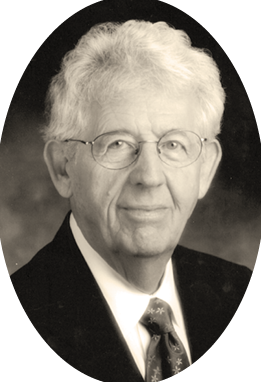When Christians get to feel the world’s hostility—the “hatred” that Jesus said should not amaze us—they are often tempted to withdraw. The urge is to colonize; to seek out your own with whom to work and among whom to live.
Sound sensible? Perhaps, but it is not the Savior’s way. When He said GO, He scattered His people like seed on the vast acre of the world. There is no Bible directive for a Geneva plan, or church-controlled state, as John Calvin sought to establish. Nor is there in Scripture an “Amana” plan for a religious colony. We are to be in the world, while not of it. This is, of course, a harder way. But it is the only way in which our society can be preserved during its time of grace . . . by the salt-like, preserving character of the believers within it.
Should a Christian seek a position of influence in government, business, the arts, and the professions? Will the world have him? The surprise answer is, “Yes!” Fact is, the world is often quick to appreciate the value of the gifts with which the Spirit enriches the children of God: the qualities of honesty, diligence, loyalty, and unselfishness all mean a great deal to any employer. You may not be sought after because of your faith in Christ, but you may very well be wanted for your natural and spiritual gifts.
Egypt had no love for Joseph’s God, but it wanted what Joseph had, and it prospered through his Spirit-given abilities. There is no hint that Nebuchadnezzar or Darius of Persia ever bowed their knees to Daniel’s God, but both were pleased to entrust their most vital governmental powers to this great Jewish statesman.
The world as our Lord speaks of it is so large, while we are so small and so few. Can we possibly be of substantial influence in it? Remember, it takes but a little salt to flavor and preserve the bulk of a ham; it takes but a small source of light to overcome the darkness of a room. Let us be what we are. What the effect will be is not our concern. Only do not let us hide our convictions, no matter how high or exposed our position might be.
The experience of Abraham’s nephew Lot at Sodom and Gomorrah offers a vivid illustration. Peter tells us that Lot was vexed in his soul, day after day, by what he saw. Since he “sat in the gate” of Sodom, we may assume that he was active in local politics, for this expression was used for what we would call the city council. At the time of the angels’ visit, he sought desperately to restrain the town’s people, whom he called his brethren, from committing the vice of sodomy, and so he became the victim of their taunts and fury.
Did Lot accomplish anything for these twin cities of vice? His disgust and his rebukes did not change anything, to be sure. We know from Genesis, however, that those cities would have been spared the frightful judgment of fire and brimstone if there had been only ten people like Lot living there! (Genesis 18:32) The fact of his being there, for one thing, is enormously important. And being there as a person who is obviously vexed in his soul by the evil around him. This may also help. The sins of our times must be reproved by God’s people, for the world as such makes light of them. To whatever extent the world may then be restrained from course outburst of sin by such witness, to that extent the world is also granted a continuation of its time for repentance.
Let us be busy in thus serving our nation wherever we may live or work. Take courage from the prayer of Jesus, whose Savior-heart is filled with concern for His people as they fulfill their dangerous mission “out there.” “I pray not that thou shouldst take them out of the world, but that thou shouldst keep them from the evil.” (John17:15)
In this series we are reprinting Spokesman articles by early leaders in the CLC. Pastor James Albrecht is the curator of the series. Rev. Rollin Reim (1922-2018) was a leader in the formation of the CLC. He held pastorates in Mapleview and New Ulm, Minnesota; Sioux City, Iowa; and Mountain View, California. This article is from the Lutheran Spokesman of June, 1965. Scripture quotations are from the King James Version.
1922-2018


